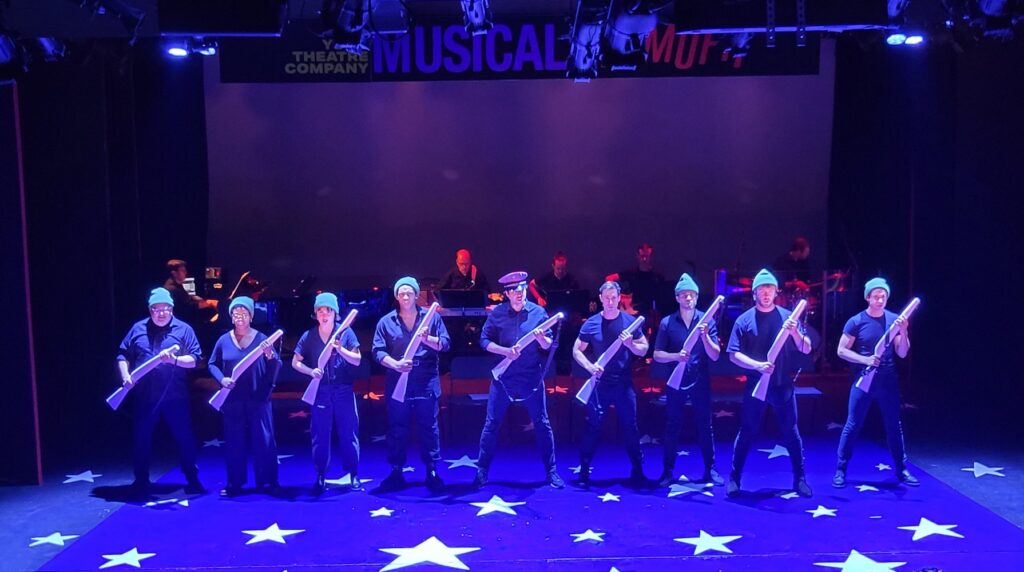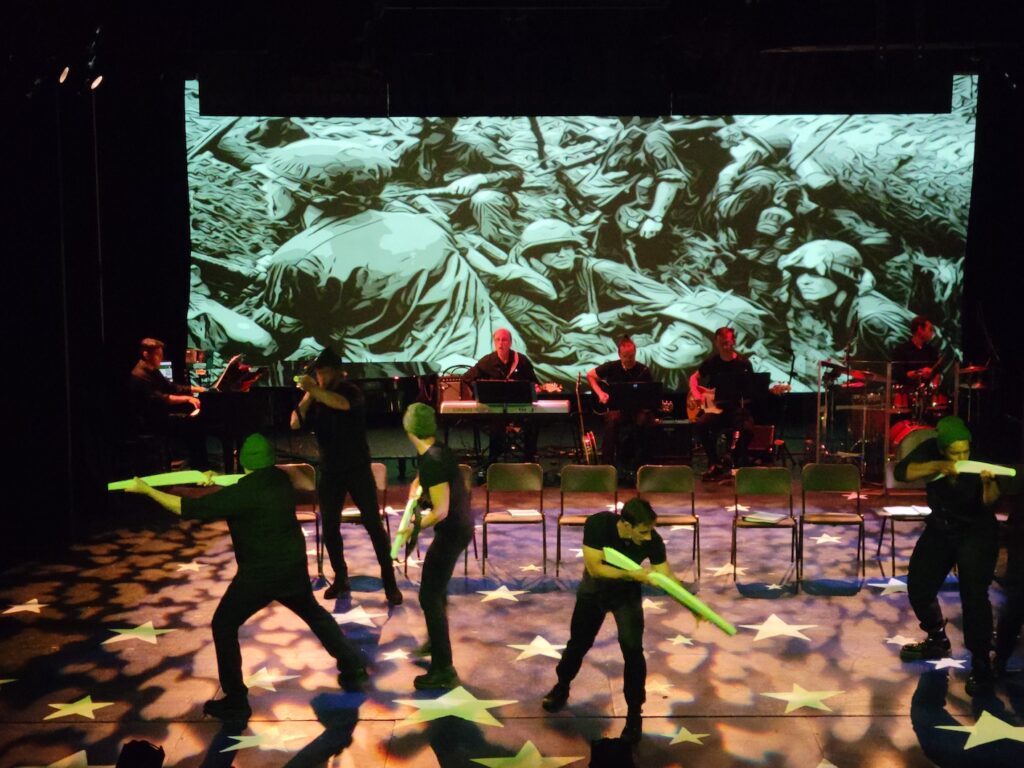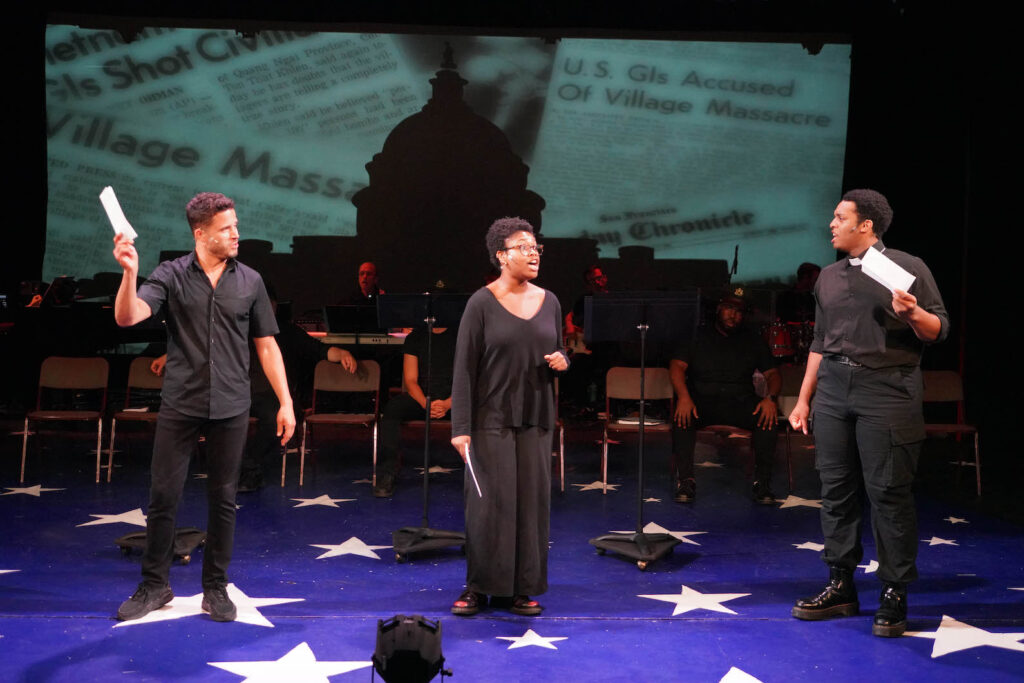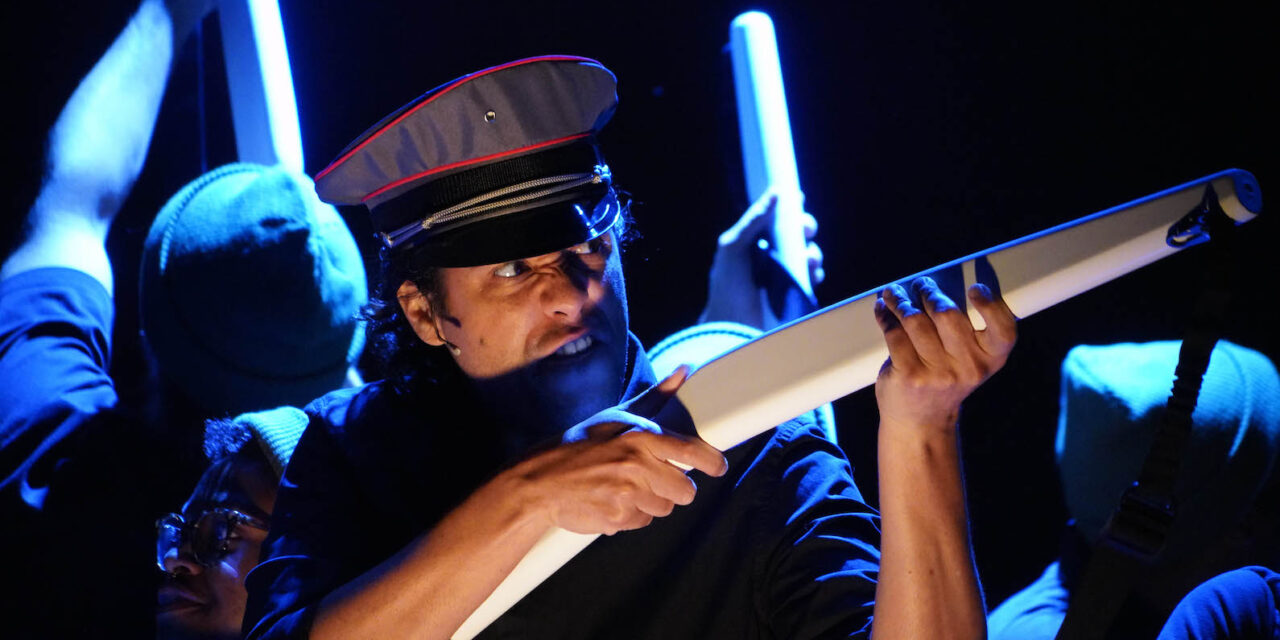By Ron Fassler . . .
The York Theatre’s “Musicals in Mufti” series is truly the place to see minimally staged, maximal entertainments. Case in point, their latest offering: the 1975 musical, The Lieutenant, which hasn’t been seen in New York since it opened and closed on Broadway in a week. And if you’re wondering why anyone would bother with something that received such a short run, it’s hardly a new thing for this series which, in the past, has presented shows that ran all of one night! The program’s production notes, by theater historian Charles Wright, dives into the intricacies of the reasons why that run was cut short and makes a case for why The Lieutenant deserves to be seen, a finding with which I’m in complete accord.

Composed as a rock opera by a trio of writers, Chuck Strand, Gene Curty and Nitra McAuliffe, who all share credit for its book, music and lyrics. No cast album was ever recorded, which has made the show a curiosity for nearly fifty years among those who care about such matters. Add to that intrigue the fact that it received a Tony nomination for its score just two days after it closed, beating out Jerry Herman’s Mack & Mabel, which Herman considered to be his very best. I can’t say that hearing The Lieutenant at its final preview performance made me rethink the injustice of that, but I will say that some of the music is quite good. The lyrics are another matter, featuring predictable rhymes in the “climb/time” and “hear/near” fashion. There are no spoken lines, and at eighty minutes its subject matter is somewhat glossed over. And that’s the most important element of the show’s historic interest.
The Lieutenant in question is William Calley (though he goes unnamed in the show). In 1968, Calley led a raid on Vietnam’s My Lai village which killed hundreds of defenseless women, children and old men. The brutality included forced rapes and mutilations with the number of dead totaling five hundred and four, making it the largest publicized massacre of civilians by U.S. forces in the 20th Century. The soldiers of Charlie Company were ordered to consider all in the area either Viet Cong (VC) or active VC sympathizers. The soldiers were told to destroy the village, and they did so without a single shot fired against them as they machine-gunned the innocents and burned the village to the ground.


The carnage was covered up for a year, but by 1970, following tremendous (American) public outcry, the Army put fourteen of the twenty-eight soldiers involved on trial, including Lt. Calley, who gave the order and actively participated in the violence. All were found not guilty, except for Calley who was found guilty of premeditated murder for ordering the shootings, despite his contention that he was only following orders from his commanding officer, Captain Medina.
1975 was a time of great unrest in the US, even though anti-war protests had diminished with the war’s official end in 1973. The damage to many Americans’ trust in the military and government, which consistently lied to them, was worsened by the Watergate scandal, which brought down the Nixon administration in 1974. Obviously, although this is not generally the stuff of musicals, its being chosen for stage treatment didn’t come out of the clear blue sky. Should it have been on Broadway? Probably not, especially since its producer mismanaged the production and, in spite of some good reviews, had to close the show due to his underfunding it. It also received Tony nominations for Best Musical and its leading actor, the late Eddie Mekka.


The major problem with The Lieutenant is that the title character is a cipher, and trying to turn him into an unfortunate victim of the war machine is flawed. His defense for his heinous actions is that he was only following orders, which makes him nearly impossible to sympathize with. He doesn’t seem to have the capacity to comprehend what is happening to him, and his inarticulateness gives us no reason to care. He is played by Anthony Festa, who has a powerful singing voice and does his best to convey Calley’s callow, aimless disposition.
The whole cast consists of singers with extremely fine voices. As the Captain, Dan Domenech hits some incredibly high notes, as does Travis Kent, who really belted the first rock song in the score, “Kill,” with a wicked passion. I also liked very much a trio that acted at times as a sort of Greek chorus, consisting of William Thomas Evans, Noah Christopher Ruebeck and A.D. Weaver. Under the confident direction and choreography (minimal) of Bill Castellino, it seemed inconceivable the show was put together in five days. Kudos to all around, including the musical direction from Eric Svejcar and his band, featuring three guitars and percussion. There is no set, only slides that decorate the back wall—the work of Peter Brucker and Matthew Gurren—which are highly effective.
Though sentenced to life in prison, William Calley’s conviction was overturned and he was released after serving three years. He is still alive at age eighty and lives in Florida.
The Lieutenant. Through September 17 at the Theatre at Saint Jeans (150 East 76th Street, between Lexington and Third Avenue). www.yorktheatre.org
Photos: Rider Foster and Richard Hillman PR, as indicated


















